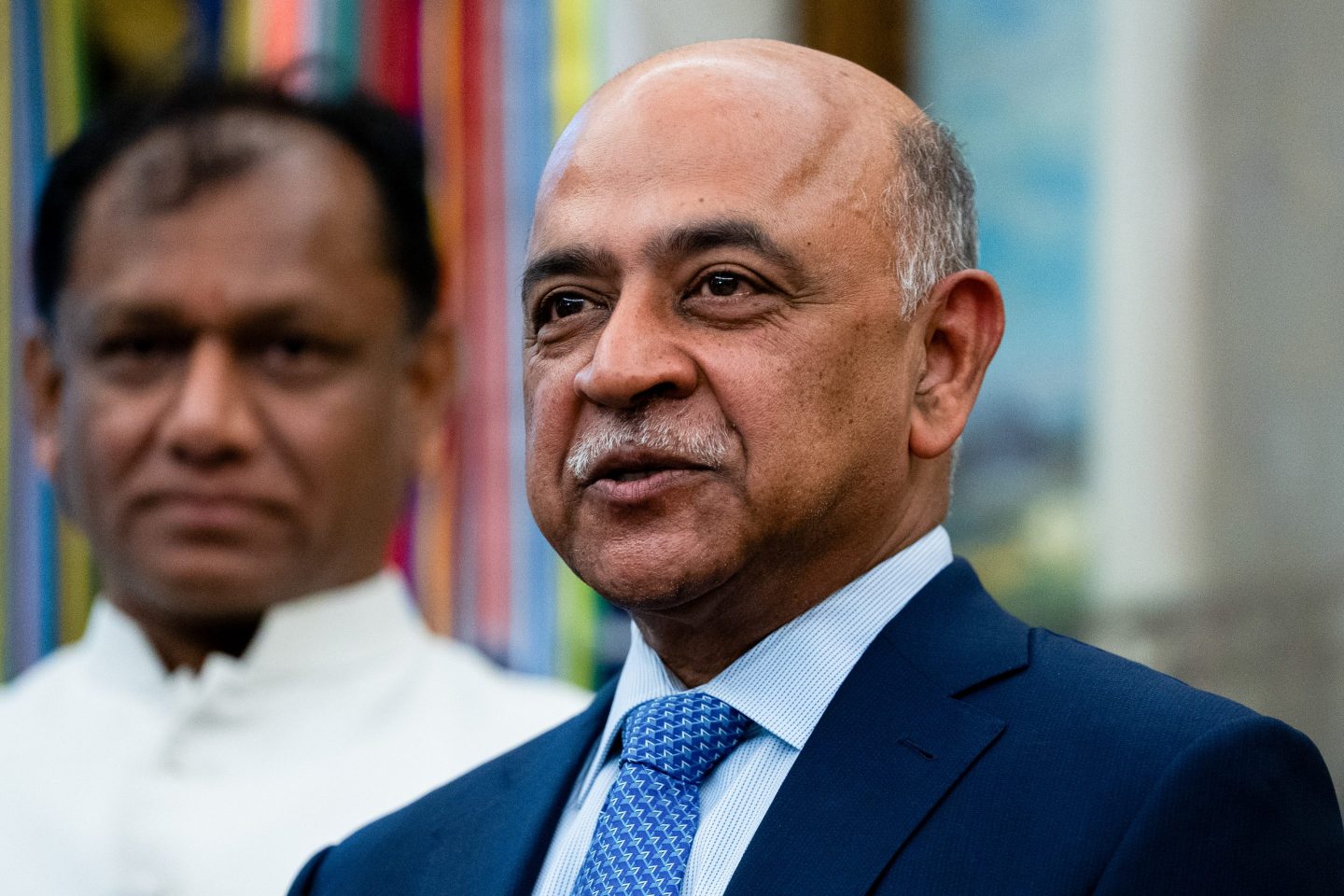As more employees return to the office, some CEOs are finding they need to reteach basic meeting etiquette—including one surprisingly divisive topic: checking your devices. JPMorgan Chase CEO Jamie Dimon has been especially blunt about it.
At Fortune’s Most Powerful Women summit last month, he said he expects full attention from everyone in the room. “If you have an iPad in front of me and it looks like you’re reading your email or getting notifications, I tell you to close the damn thing,” he told Fortune Editor-in-Chief Alyson Shontell. “It’s disrespectful.”
IBM CEO Arvind Krishna, however, sees it a bit differently. He argued that it would be “weird” for a tech company to tell its employees not to use their technology—especially in larger meetings where devices can be a useful tool rather than a distraction.
“I distinguish between one-to-10-person meetings and very large meetings. If it’s a very large meeting, I’m sorry. It’s not really a meeting. It’s a communication vehicle. You’re just informing people,” Krishna told CNN last week.
At the same time, the 62-year-old said that smaller, more intimate meetings should be treated attentively.
“If it’s a small meeting, I would really frown upon if somebody is sitting opposite my desk and lost in their phone, I would tell them, ‘why don’t you come back when you have time?’”
Fortune reached out to IBM for further comment.
Dimon’s long-standing frustration with meetings
Behavior in the conference room is something that Dimon has long lamented. In fact, in his annual letter to shareholders last spring, he mentioned the word “meetings” six times—urging employees to only schedule them when necessary and to make them count.
“I see people in meetings all the time who are getting notifications and personal texts or who are reading emails,” he wrote. “This has to stop. It’s disrespectful. It wastes time.”
While Dimon hasn’t drawn clear lines around meeting size like Krishna has, his frustration appears to extend well beyond small gatherings.
During a conversation at Stanford University in March, Dimon recalled joining a Zoom meeting where attention was clearly divided.
“There were 12 people in the room and four people on the screen and all four people on the screen were on their phone,” he recalled. “And people say, and you think you’re focusing and learning?”
Dimon’s disdain for distracted meetings comes as he’s led one of the most aggressive return-to-office mandates on Wall Street. Most JPMorgan employees are now required to work in the office five days a week—at least in part, to see a return on the company’s real estate investments.
Last month, JPMorgan officially opened its new $3 billion global headquarters in Manhattan, a 60-story skyscraper equipped with 19 restaurants, a company store, and gym.
Putting the devices down might catch your boss’s attention
With a growing reliance on technology in the workplace, multitasking during a meeting has become easier than ever—especially when an AI assistant can generate a post-meeting summary and allow you to zone out.
However, multitasking in person is especially disrespectful and a bad habit, according to Gary Rich, founder of executive coaching firm Rich Leadership.
“Are manners ‘old fashioned?’ Is listening to what’s happening in a meeting ‘old school?’” Rich previously told Fortune. “When people are multitasking during a meeting, the distraction creates a ripple effect—the speaker feels disrespected, other attendees lose motivation, and the meeting becomes less productive.”
Taking the high-road—and practicing good meeting etiquette—can ultimately be an effective way to earn recognition, show genuine commitment, and build credibility.













